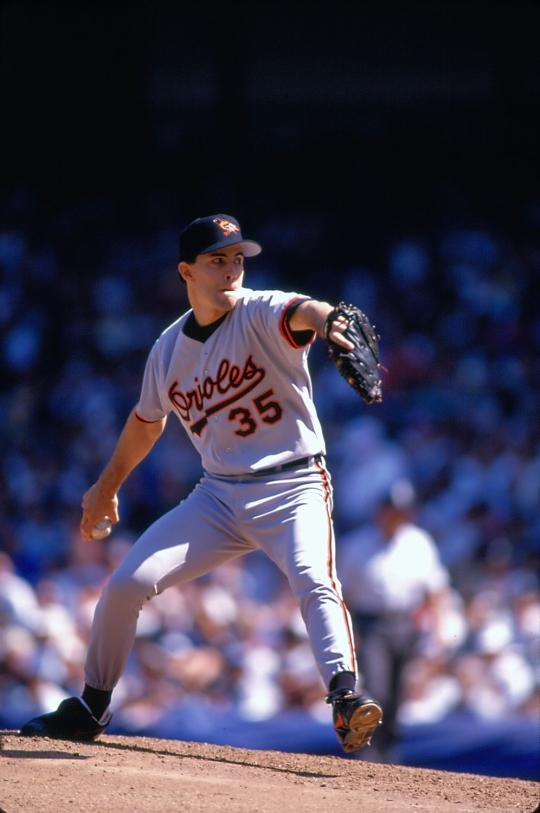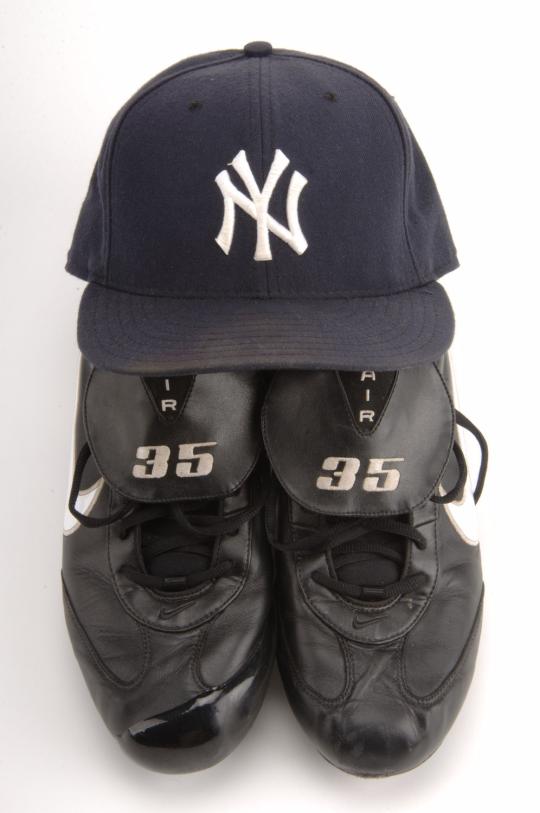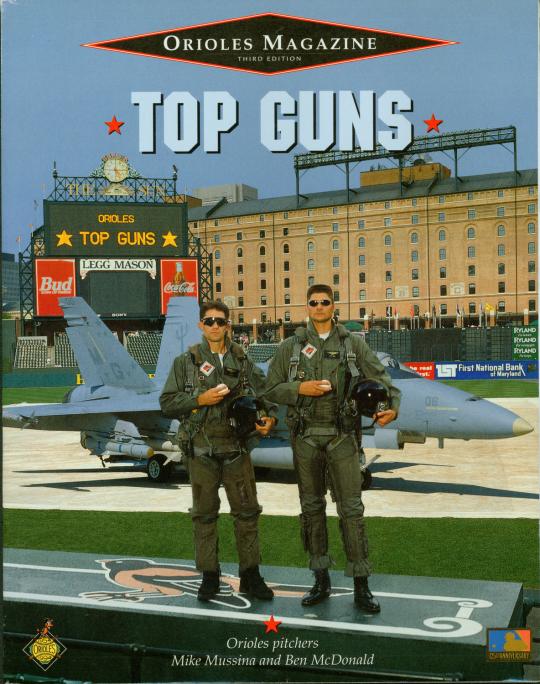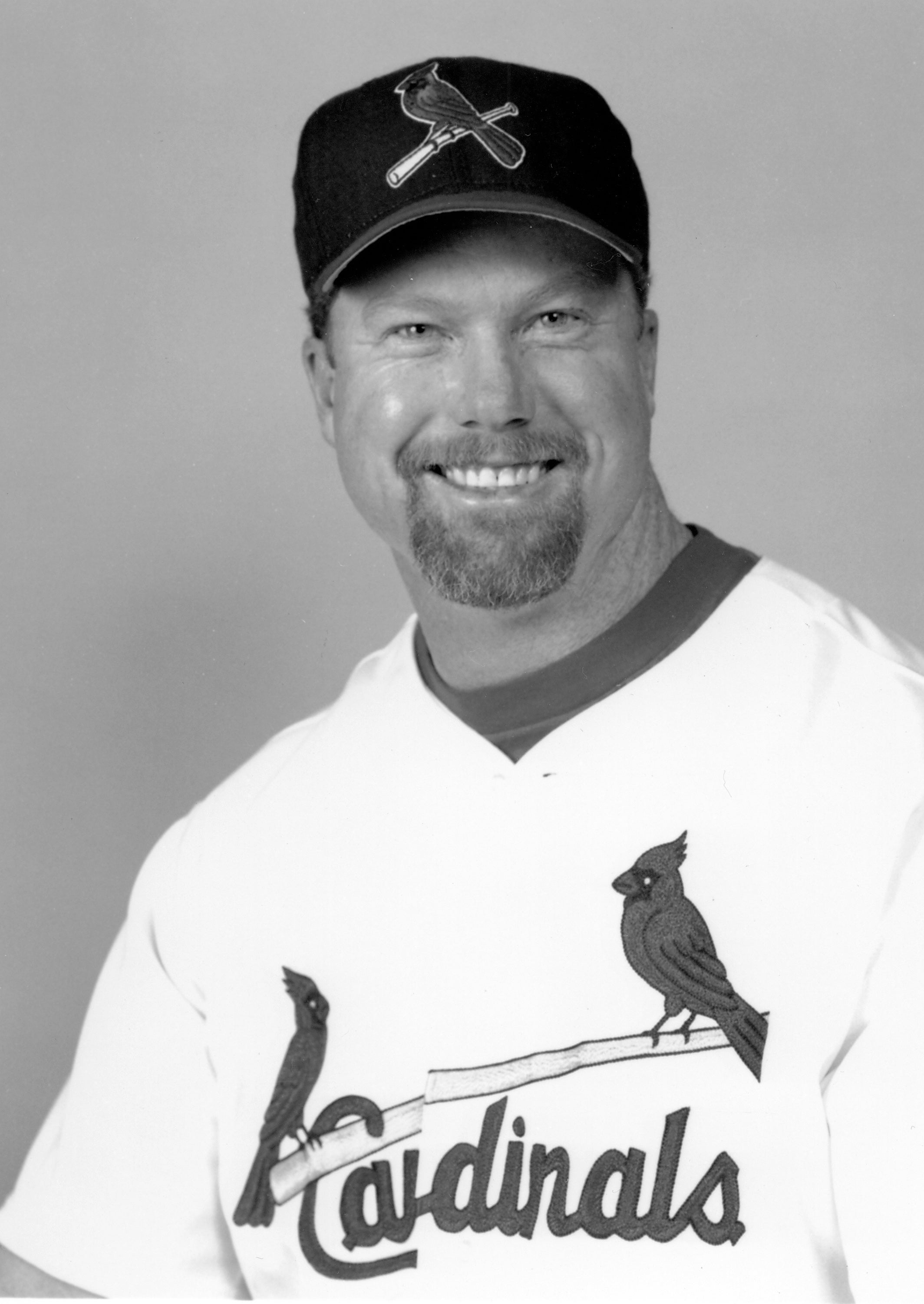- Home
- Our Stories
- Mike Mussina returns to the BBWAA Hall of Fame ballot
Mike Mussina returns to the BBWAA Hall of Fame ballot
Consistently consistent.
While that may be the way Hall of Famer Yogi Berra would depict Mike Mussina, it also accurately describes the way Mussina played the game.
Mussina retired from the game of baseball in 2008 – after recording 270 wins in his 18-year career. A model of consistency, Mussina logged 17 seasons of 10-plus wins.
“To ask if I should be compared to Greg Maddux or to [Tom] Glavine or anybody that’s played in this era, that in itself is an honor,” Mussina said.
“People are going to talk about [my Hall of Fame chances] any number of ways. I'm just glad that I've achieved enough and made enough of an impression that people are going to include me in the conversation.”
Mussina returns to the Baseball Writers’ Association of America Hall of Fame ballot for the second time this fall after receiving votes on 20.3 percent of ballots cast in 2014. He is one of 34 players on the 2015 BBWAA ballot for the Class of 2015.
“There's no question in my mind he's a Hall of Famer,” Yankees General Manager Brian Cashman said. “Some people say 300 wins is an automatic plateau. What he did to get 270 total wins, with all those things combined – in a division where the Red Sox and Yankees have been slugging it out ... [in] the toughest division in baseball for at least a decade – I just think it has been spectacular for the length and consistency. He's one of the all-timers.”
BBWAA members who have at least 10 years of tenure with the organization can vote in the election, and the results will be announced Jan. 6. Any candidate who receives at least 75 percent of all BBWAA votes cast will be enshrined in the Hall of Fame as part of the Class of 2015. The Induction Ceremony will be held July 26 in Cooperstown.
Bio
Growing up in Montoursville, Pa., Michael Cole Mussina was a three-sport athlete in high school, as he starred on the basketball court and the football field, but he was at his best on the pitcher’s mound.
He was drafted out of high school by the Baltimore Orioles in the 11th round of the 1987 Draft. However, Mussina nixed the Orioles’ offer in favor of Stanford University, where he enrolled and played the game he loved.
At Stanford, Mussina continued to excel. In three years, he won more than 25 games and was a key contributor on the 1988 Cardinal team that won the NCAA National Championship – he was named the Most Valuable Freshman on the 1988 squad.
Although years had passed, the Orioles did not give up on pursuing Mussina and finally got their guy, as he was drafted by Baltimore again, this time with the 20th pick in the first round of the 1990 Major League Baseball Draft. Mussina decided to forgo his final year at Stanford and sign with the Orioles. Ultimately Baltimore proved to be a great landing spot for Mussina, as the Inner Harbor is located only about three hours from his hometown.
It didn’t take long for “Moose” to make his debut with the big league team in Baltimore. After only 28 appearances in the minors, Mussina debuted on Aug. 4, 1991, giving up just one run on four hits in 7.2 innings.
Mussina quickly established himself as a household name at the big league level. In his first full season – 1992 – he won 18 games and finished with a 2.54 ERA. He was selected to the AL All-Star team and finished fourth in Cy Young Award balloting.
In the strike-shortened season of 1995, Mussina led the American League in wins with 19. His ERA of 3.29 was fourth in the league.
As Mussina continued to advance his career, the Baltimore Orioles progressed as well. After the Orioles finished the 1995 season near .500, 1996 signaled the start of what would be Baltimore’s first back-to-back postseason run since the 1973-74 seasons.
Mussina led Baltimore to two straight AL Championship Series appearances in 1996 and 1997. In six postseason starts over the two years, he logged a 2-1 record with a 2.53 ERA, striking out 53 batters in 42.2 innings pitched.
After spending his first 10 years at the MLB level with the Orioles, Mussina signed with the New York Yankees in the fall of 2000 as a free agent. He left behind a legacy in Baltimore, leaving the Charm City with 147 wins – third in Baltimore’s history – while his 1,535 strikeouts rank second all-time in the Oriole annals.
In the Bronx, Mussina would help form one of the more formidable rotations put together in recent years. In his eight seasons, Moose would pitch alongside many Yankee greats including the likes of Roger Clemens, Andy Pettitte, David Wells and Randy Johnson.
The Yankees would win two AL Championships with Mussina on the club. In 2001 – his first season with the Bronx Bombers – the Yankees would fall in seven games to the Arizona Diamondbacks in the World Series.
Mussina was a key catalyst in 2001’s deep postseason run. He won three of his four starts, retiring 21 batters via the strikeout and recording a 2.63 ERA over 24 innings pitched.
In the 2003 season, Mussina won 17 games – a feat he accomplished eight times in his career – and led New York’s starting rotation in ERA with a 3.40. In the process, he helped the Bronx Bombers bring another AL Pennant to Yankee Stadium, but this time the Yankees would fall in the World Series to the NL Champion Florida Marlins, in six games.
All in all, out of the eight seasons Mussina donned the famous Yankee Pinstripes, the team would win six AL East titles and appear in the postseason seven times.
After a sub-par 2007, Mussina bounced back in 2008 with one of the best seasons a 39-year-old pitcher has ever compiled. The man with a degree in economics from Stanford used his veteran prowess and his pinpoint accuracy to will batters out, rather than try to overpower them as he did earlier in his career.
“Mike’s a great competitor,” former Baltimore teammate Cal Ripken said. “He makes great pitches when he has to. And he makes adjustments.”
He developed and threw more pitches – and variability within those pitches to get the job done – so much he drew some big comparisons from his former manager, Joe Torre: “[Juan Marichal] is the guy that comes to mind, a guy being able to throw a lot of pitches at different angles and throw strikes at any time.”
Finality to his Yankees career – and career in baseball – did not come without fireworks. In Mussina’s final season, he recorded his first 20-win season – something he had been ever so close to his whole career, finishing with 19 wins twice. Mussina’s final stat line in 2008 read like he was nearing the precipice of his career, not the end: 20-9 with a 3.37 ERA.
In his final game, Moose went six innings and did not allow a run against arch-rival Boston. He got the win and in the process became the oldest first-time 20-game winner.
Mussina was a figure of consistency in baseball over two different decades. He won at least 10 games in each of his 17 full seasons and recorded 11 15-win seasons. “You have to watch him every fifth day to appreciate how good he has been and how consistent he has been,” said Torre.
Mussina ended his career with 270 wins, tied for 33rd on the all-time list, while his 2,813 strikeouts rank 19th in MLB history. He was a five-time All-Star and won seven Gold Glove Awards.
“It was a great pleasure playing against – and even more so – with Mike Mussina since I entered the league in 1995,” said former teammate Derek Jeter. “He was a true professional both on and off the field. Moose's accomplishments in the game over the last 18 years represent a Hall of Fame player.”




